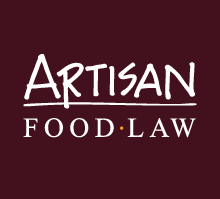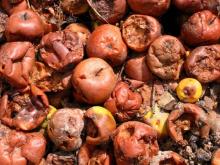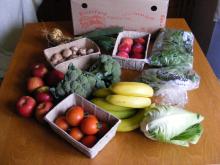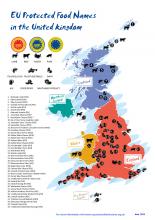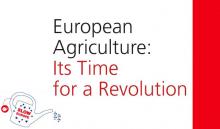It may come as a surprise to those who have read all the criticism of EU regulations to be found elsewhere on this blog, but remaining a part of the EU is by far the better choice for small scale food producers. The UK must remain an integral and key player in the future of Europe following the vote this Thursday.
Growing and Selling
Food law and the regulatory framework for artisan and small scale producers in growing, making and selling produce, business models, street food and foraging.
The grand political narratives around the COP21 conference in Paris will barely touch on one crucial aspect – food. The Paris talks are of vital importance, not just for climate change itself but for framing what kind of food economy follows. And why does food matter for climate change? Well, it’s a major factor driving it yet barely gets a mention.
In January 2013 the European Commission launched a public consultation on the future of organic agriculture. Artisan Food Law raised the hope that questions around the presence of GMOs in organic food “… do not become a precursor to proposals that would permit higher levels of contamination or, worse still, the deliberate inclusion of GM ingredients in organic products.”
I knew this was going to be a special experience from the outset, food from farm to fork and every stage in between. We, my son Nat and I, arrived at Trealy Farm for The Meat Course in good time on a Friday evening in early March to a warm welcome from Ruth and James, the brains and inspiration behind all that goes on at Trealy Farm.
On 4 March 2013 the European Commission published the results of a study undertaken on the value of Geographical Indication (GI) food products. The results provide some insight into the overall impact of GI products which are considered here from the perspective of the UK.
The Common Agricultural Policy (CAP) has shaped agriculture in Europe since 1962. Since then a progressive change in the structure of agricultural undertakings has taken place with large corporate interests now dominating food production and able to take advantage of the CAP which accounts for roughly half of the EU’s budget, some £50 billion of which 70% is spent on direct payments. In the UK around 200,000 farmers receive £3.3 billion but it is the big corporates that benefit most.
The European Commission has launched a public consultation on the future of organic agriculture which is open to all interested parties.
European organic production rules cover the whole production chain from farm to fork. Producers who follow the rules have the right to label their products ‘organic’ and to put the EU green leaf logo on packaging.
The European Court of Auditors (ECA) recently published a special report: Audit of the Control System Governing the Production, Processing, Distribution and Imports of Organic Products. The report sets out the results of a recent audit on the effectiveness of the arrangements for supervising organic production.
